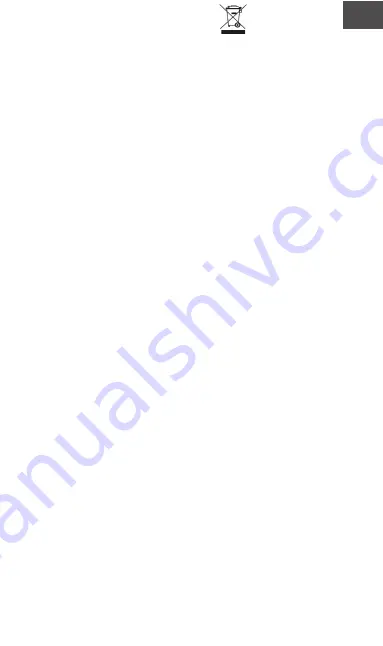
EN
- Make sure the device is powered on.
- Check the Wi-Fi connection of your phone.
- Check if the device is in pairing mode. Reset your smart device to
enter pairing mode.
- Check router or related: If you use a dual-band router, select the
2.4GHz network to add the device. You also need to enable the
router's broadcasting function. Set encryption method as
WPA2-PSK and authorization type as AES or set both on "auto".
- Check if the Wi-Fi signal is strong enough. To maintain the signal
strong, keep your router and the smart device as close as possible.
- Wireless mode should be 802.11.b/g/n (Wi-Fi 6 protocol 802.11ax
is not supported)
- Make sure you don't exceed the maximum number of registered
devices supported by the app (150).
- Check if the router's MAC filtering function is enabled. If so,
remove the device from the filter list and make sure the router is
not prohibiting the device connection.
- Make sure the Wi-Fi password entered in the app is correct.
Can I control the device with 2G/3G/4G network?
When adding the device for the first time, the device and the phone
need to be connected to the same Wi-Fi network. Once the device
has been successfully paired with the Tellur Smart app, you can
remotely control it via 2G/3G/4G networks.
How can I share my device with family?
Open Tellur Smart app, go to "Profile" -> "Device sharing" ->
"Sharing sent", tap "Add sharing" and share the device with the
added family members.
Notice - users must install the Tellur Smart app on their device in
order to see shared devices.
How can I manage the devices shared by others?
Open App, go to "Profile" > "Device Sharing" > "Sharing Received",
then you can find the devices shared by other users. To delete a
shared device, swipe left.
Disposal and recycling information
The crossed-out wheeled-bin symbol on your product, battery,
literature, or packaging reminds you that all electronic products
and batteries must be taken to separate waste collection points at
the end of their working lives; they must not be disposed of in the
normal waste stream with household garbage.
It is the responsibility of the user to dispose of the equipment
using a designated collection point or service for separate
recycling of waste electrical and electronic equipment (WEEE)
and batteries according to local laws.
Proper collection and recycling of your equipment helps ensure
EEE waste is recycled in a manner that conserves valuable
materials and protects human health and the environment,
improper handling, accidental breakage, damage, and/or
improper recycling at the end of its life may be harmful for health
and environment.









